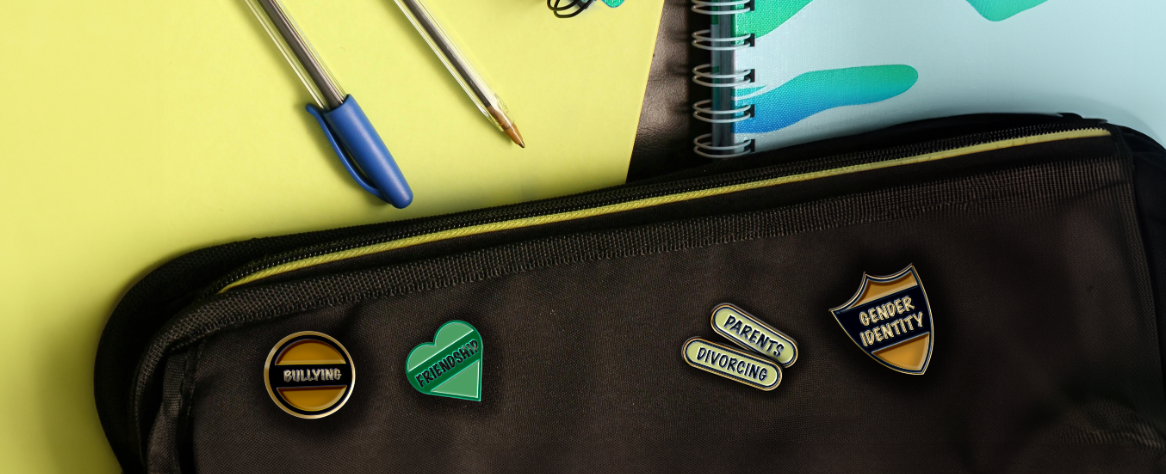
September represents a fresh start, but for children struggling with low self-esteem, a new school year can feel more daunting than exciting. When your child has low self-esteem, the prospect of new challenges, social situations, and academic expectations can seem overwhelming rather than opportunities for growth.
Self-esteem in kids isn’t just about feeling good – it’s the foundation for resilience, learning, and healthy relationships. Children with strong self-esteem approach challenges with curiosity rather than fear, recover more quickly from setbacks, and engage more fully in learning and friendship.
How school experiences shape self-esteem in children
The school environment plays a crucial role in developing self-concept. From early years through secondary education, children are constantly receiving messages about their abilities, worth, and place in the social world.
Academic experiences significantly impact self-esteem. Children who struggle academically may begin to see themselves as “not smart enough,” while those who excel might base their entire sense of worth on their grades and achievements. Both extremes can be problematic for healthy self-esteem development.
Social interactions at school provide constant feedback about acceptability and belonging. Friendship formation, playground dynamics, and peer approval become measures of self-worth that can either build or erode confidence.
Teacher relationships matter enormously. A teacher who sees and encourages a child’s strengths can transform their self-concept, while criticism or indifference can damage confidence that takes years to rebuild.
Comparison with peers is inevitable in school settings, but children with low self-esteem often focus exclusively on areas where others outperform them, ignoring their own strengths and progress.
Recognising signs of low confidence in school children
When your child has low self-esteem, it often shows up in specific ways within the school context that parents and teachers can learn to identify.
Academic signs include:
- Giving up quickly when work becomes challenging
- Saying “I can’t do this” before attempting tasks
- Requiring excessive reassurance about their work
- Perfectionist tendencies that prevent them from trying new things
- Comparing their work negatively to classmates
Social indicators might include:
- Difficulty making or maintaining friendships
- Reluctance to participate in group activities
- Assuming others don’t like them (without evidence)
- Being easily influenced by peers due to desperate need for acceptance
- Avoiding social situations or school events
Behavioural patterns often include:
- School refusal or reluctance that goes beyond normal nerves
- Emotional outbursts when faced with challenges
- Withdrawal from activities they previously enjoyed
- Negative self-talk that becomes automatic
- Physical complaints that have no medical cause

The connection between self-esteem and academic performance
Self-esteem and learning are intimately connected. Children who believe in their ability to learn and grow approach academic challenges differently than those who doubt their capabilities.
High self-esteem supports learning by:
- Encouraging persistence when work is difficult
- Allowing children to see mistakes as learning opportunities
- Building resilience to bounce back from poor results
- Fostering curiosity and willingness to ask questions
- Creating confidence to participate in class discussions
Low self-esteem undermines learning through:
- Fear of failure that means they don’t even attempt challenging work
- Anxiety that interferes with memory and concentration
- Negative self-talk that becomes self-fulfilling prophecy
- Avoidance of subjects where they feel less confident
- Comparison to others that overshadows personal progress
- This creates a challenging cycle where low self-esteem leads to poorer academic performance, which further damages self-esteem. Breaking this cycle often requires targeted intervention and support.
Building resilience before school challenges arise
Prevention is always better than intervention. Building your child’s emotional resilience and self-esteem during calm periods means they’re better equipped to handle school stresses when they arise.
Here are approaches you can try.
Focus on effort over outcome in all your conversations about school and learning. “I noticed how hard you worked on that maths problem” carries more weight than “You’re so clever”, because it emphasises something within their control.
Celebrate small wins and progress rather than only acknowledging major achievements. Recognising incremental improvement builds confidence in their ability to grow and develop.
Help them identify their strengths beyond academic achievement. Are they kind, funny, creative, helpful, good at listening? Ensure they see themselves as multidimensional people with various valuable qualities.
Teach them about brain plasticity – the idea that abilities can grow with practice and effort. This growth mindset protects against the fixed mindset that says “I’m just not good at this”.
Model self-compassion in your own self-talk and mistakes. Children learn how to treat themselves by watching how adults handle their own imperfections.
Working with teachers to create positive experiences
Teachers can be powerful allies in building self-esteem, but they need to understand your child’s needs to provide appropriate support.
Share insights about your child’s strengths that might not be immediately apparent in classroom settings. Perhaps they’re deeply empathetic, have great problem-solving skills, or show leadership in family situations.
Discuss strategies that work at home for building confidence and managing challenges. Teachers appreciate practical suggestions they can implement in classroom settings.
Request specific feedback about progress rather than just grades or behaviour reports. Understanding what your child is doing well and where they’re improving helps you reinforce positive messages at home.
Collaborate on goal-setting that focuses on personal growth rather than comparison to classmates. Individual progress markers help children see their own development rather than feeling behind others.
When professional support can help with child self-esteem
While many children develop healthy self-esteem with consistent support from family and school, some benefit significantly from therapy for children lacking confidence.
Consider professional support for your child when:
- Your child’s negative self-talk is persistent and severe
- They avoid activities or opportunities due to fear of failure
- Low self-esteem is affecting friendships and social development
- Academic performance is suffering due to confidence issues
- Family relationships are strained by constant reassurance-seeking
- Previous efforts to build confidence haven’t created lasting change
Professional support doesn’t mean there’s something “wrong” with your child. It means you’ve recognised that some children need additional tools and strategies to develop healthy self-esteem.
Our approach to building confidence in children
At Now You’re Talking, we understand that self-esteem isn’t built through empty praise or false reassurance. Real confidence comes from helping children develop genuine skills, recognise their authentic strengths, and learn to treat themselves with kindness.
Our confidence-building approach includes:
Strengths-based assessment that helps children and families identify genuine abilities and positive qualities that might have been overlooked or undervalued.
Cognitive techniques appropriate for different ages that help children notice and challenge negative self-talk patterns that undermine confidence.
Behavioural experiments that provide safe opportunities to try new things and build evidence of their capabilities in low-risk environments.
Social skills development when confidence issues stem from difficulties with peer relationships or social anxiety.
Family work to ensure that confidence-building continues at home through communication patterns and daily interactions that reinforce positive self-regard.
Creating a confident foundation for learning
Building self-esteem in kids isn’t about creating unrealistic confidence or shielding children from all challenges. Instead, it’s about helping them develop:
- Realistic self-assessment that acknowledges both strengths and areas for growth
- Internal validation that doesn’t rely entirely on external approval
- Resilience to bounce back from setbacks and disappointments
- Growth mindset that sees abilities as developable rather than fixed
- Self-compassion that treats mistakes as learning opportunities rather than evidence of inadequacy
Looking ahead: A confident school year
Children with healthy self-esteem approach school with curiosity rather than fear. They’re more likely to:
- Try new subjects and activities
- Form positive relationships with teachers and peers
- Recover quickly from academic or social disappointments
- Advocate for themselves when they need help
- Enjoy learning for its own sake rather than just for approval
The beginning of a new school year offers a perfect opportunity to implement confidence-building strategies and, if needed, access professional support that can make this year transformative for your child’s self-esteem.
Is your child starting the school year with confidence challenges? Our child-centred approach helps young people discover their strengths and develop genuine self-esteem.
Book a free 15-minute consultation with our specialist child therapists to discuss how therapy for children lacking confidence can help your child thrive this school year.
Remember, every child deserves to feel capable and valued. With the right support, children with low self-esteem can develop the confidence to embrace challenges, form healthy relationships, and discover the joy in learning and growth.


